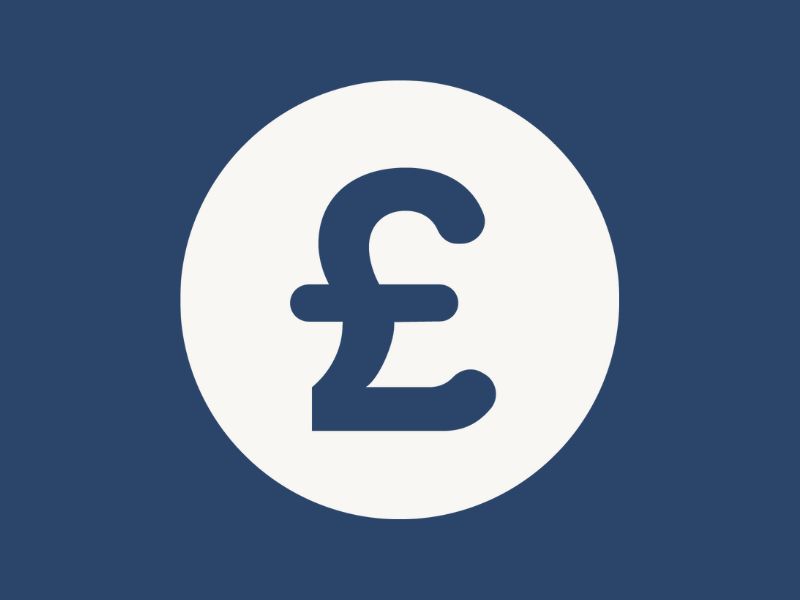
Does switching banks affect your credit score?
Here’s what you need to know about switching bank accounts and the potential knock-on effects to your credit score.
What's in this article
Credit scores: a quick recap on how they workHow does switching banks affect your credit score?Switching banks often requires a hard searchSteps worth taking before opening a new account:Closing your old bank account can also impact your credit score.Steps worth taking before closing your old account:What else should you know before you switch banks?Key takeaways: Does switching banks affect your credit score?Related FAQs:What is the difference between a ‘hard search’ and a ‘soft search’?How long do searches remain on your credit history?Switching banks can sometimes seem like an easy way to improve your finances – be it due to better interest rates, terms, or other perks. But it’s important to remember that, in some cases, leaving one bank for another can impact your credit score in a negative way.
This is due to the credit checks that banks will likely conduct ahead of you opening a new account with them. Let’s look at credit searches in more detail and see how they could potentially affect your credit score.
Credit scores: a quick recap on how they work
It's important to note that when lenders access your credit report, they won’t be looking at the credit score you see when you check it yourself.
The credit score you see referenced on each of the credit reports held by the credit reference agencies – Experian, Equifax, and TransUnion – is mostly there for your benefit, to give you an indication of how your financial and borrowing information may be viewed by prospective lenders.
Instead, lenders will be looking at your credit report and the information contained within it as a whole. They’ll calculate their own score for you based on their systems and criteria.
This is partly why a lower score can’t be said to preclude you from accessing credit. There are some lenders who specialise in clients looking to build a healthier credit score. They’ll just do so on different terms.
How does switching banks affect your credit score?
The basic act of moving your account from one bank to another doesn't, in itself, affect your credit score. But there are parts of the process that can have a knock-on effect. So before deciding whether to change banks, there are two particular factors to keep in mind.
First, opening a new account will usually come with a credit report search like a hard search. Second, closing your old account could mean you lose out on positive credit history and see your credit utilisation rate shift temporarily.
Switching banks often requires a hard search
You might already know that applying for a credit card can affect your credit score because of the hard searches that are done as part of the application process. Similarly, when you open a new bank account – specifically one with an overdraft facility – the bank will likely perform a search on your credit report.
Depending on the type of account, some banks only perform a soft search, while others will do a hard search (also referred to as a hard check), accessing your full financial history. There’s sometimes a slight temporary dip in your credit score after a single hard search, but your score will recover quickly providing you maintain your other credit obligations. (For more information on the difference between hard and soft searches see our FAQ below).
Having too many hard searches on your credit report can suggest several things to lenders. It can suggest you’re in financial trouble, overly reliant on credit, or have been repeatedly turned down by other lenders. It could also signal that you’ve had a stream of applications approved and now have access to a large amount of credit, which can raise concerns over how you’ll stay on top of it all. Essentially, a credit report containing a lot of hard searches creates uncertainty around potentially risky borrowing behaviour.
All this might result in the lender declining your application, or if they approve it they may do so with less favourable terms such as higher Annual Percentage Rates or lower limits on credit cards.
Steps worth taking before opening a new account:
Before making a formal application to open an account with a new bank, it can be a good idea to make use of online eligibility checkers to see if you’re applying for the right account for you and one that you’re likely to be approved for. In this way you can avoid unnecessary hard searches and their potential negative impact on your report.
While you’ll need to give a lender permission before they carry out a hard search on your credit report, remember that it may be buried in the terms and conditions of an agreement and not immediately clear. Check what sort of search your prospective bank will conduct on your credit report before you make your applications. If the account you’re applying for has any kind of credit attached, you’ll probably be subject to a hard search.
Ensure all the information on your credit report is correct and that you’re registered on the Electoral Roll to give yourself the best chance of being given the green light.
Closing your old bank account can also impact your credit score.
The concept of bank switching implies you may also be planning to close your existing bank account. This can also have an effect on your credit score in specific instances.
In particular, when it comes to credit cards, an account with a positive history of regular payments is an advantage to have on your credit report. It shows evidence of healthy borrowing which can only bolster your credit score.
Steps worth taking before closing your old account:
Some banks have benefits and rewards for long-time account holders. It might be worth checking if your new bank has similar perks. If not, it could be worth keeping your old account open.
Make sure your old account is paid up and in good order before you close it.
What else should you know before you switch banks?
There are some other factors to keep in mind before you decide to jump ship to a new current account.
If you choose to open a current account with someone else, for example a partner, their credit history will also affect the outcome of your application. While opening a savings account with someone else – known in the industry as a financial association – means you shouldn't be affected by their adverse credit history, anytime you’re looking to be approved for a credit-carrying account, lenders will want to know your partner’s credit history too. So a high credit score on their side will reflect favourably on you, with the opposite also true. Be sure to take your financial association’s borrowing history into account before making an application that may leave an unnecessary hard search on your account in the event your application is denied.
If you’re planning on taking out a big loan or applying for a mortgage in the next six months or so, it might be worth holding off on switching banks. In both these instances, you’ll want to be sure that your credit report looks as good as possible without any unnecessary hard searches listed.
Key takeaways: Does switching banks affect your credit score?
In short, switching banks just once might temporarily lower your credit score, and switching banks many times over the course of a few months can have a more serious impact on your credit score.
Moving from one bank to another can be a useful way to save on high fees, take advantage of better interest rates and find banking solutions more suited to your needs. But it’s something worth thoroughly researching before you do.
And if you’re planning to apply for a loan or mortgage in the near future, it may be best to hold off on switching banks for now.
Related FAQs:
What is the difference between a ‘hard search’ and a ‘soft search’?
There are two main kinds of searches that can be carried out on your credit report. These searches are known as either ‘hard’ or ‘soft’ searches.
Soft searches (or soft credit checks) can be either audit or enquiry searches:
Audit checks are those created when you check your own credit report, or when your existing lender runs routine checks of your finances. These checks are not visible to anyone else.
Enquiry searches are those run by prospective landlords, employers or even lenders as a sort of pre-screening tool. These checks are most often just done to verify your details. Enquiry searches are visible to others viewing your report.
What’s most important is that neither of these soft searches will negatively impact your credit score, unless conducted in the process of debt collection.
A hard search (or a hard credit search), on the other hand, is visible to other lenders and can potentially harm your credit score. In many cases, while a solitary credit search may cause your score to dip slightly, it usually bounces right back up.
But too many hard searches in too short a time can have a longer lasting negative effect on your credit score. Numerous hard searches can suggest to lenders that a customer is struggling to manage their finances. While prospective lenders won't be able to see if your credit application was successful or not, they may assume there are many applications due to there being an equal number of refusals.
How long do searches remain on your credit history?
How long credit applications or hard searches remain on your credit report will vary by credit reference agency.
The three main credit reference agencies (CRAs) in the UK are Experian, Equifax, and TransUnion. Each CRA gathers and analyses credit information independently, using their own systems to do so. This means you’ll have three different credit reports with three different credit scores; one from each credit reference agency.
Both Experian and Equifax retain hard searches for one year while TransUnion normally hold onto hard searches for two years. After this period, hard searches drop off your credit report naturally.
Lenders may choose to access your report at one, or at all three, of these credit reference agencies, which makes the most detailed credit report out there from Checkmyfile ideal. With Checkmyfile, you’re able to check the information from all three CRAs at once and in an easy-to-compare format.
Credit checks can sound daunting but they’re a normal and expected part of our financial lives today. Almost all of us will have one done at some point. Knowing as much about all the information that may be contained in your credit report is an important part of remaining on top of your finances.
